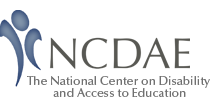Context for our work
For individuals with disabilities, technology offers a communication medium that is independent of individual physical ability. By accessing information electronically, individuals can overcome barriers of time, space and geographical location as well as architectural barriers. Moreover, in order to benefit from educational opportunities and to maintain employment, it is increasingly critical that individuals access electronic information from web sites and use electronic tools. Unfortunately, web content and other technologies used in education are often built such that many with sensory impairments, physical impairments, or cognitive disabilities have problems accessing or using the information; this includes an array of digital functions (such as employment applications, course registrations), which are similarly hampered.
In 2004, the Center for Persons with Disabilities at Utah State University established the National Center on Disability and Access to Education (NCDAE) to address issues of technology and disability in education through policy, research, training and technical assistance, and dissemination of information. The NCDAE operates in collaboration with a national network of affiliates and subscribers who represent public agencies, non-profit organizations, and the private sector, as well as interested individuals. The NCDAE has historically worked across four major goals:
- Goal One: Conduct policy research pertinent to development of a national agenda to promote universal access in technology-mediated education;
- Goal Two: Develop tools to enable accessible technology-mediated education;
- Goal Three: Provide education that promotes universal access to technology-mediated education; and
- Goal Four: Disseminate information in multiple venues to create awareness of issues of access to technology-mediated education, provide information about measures to promote universal access, and engage partner agencies and organizations to increase access.

